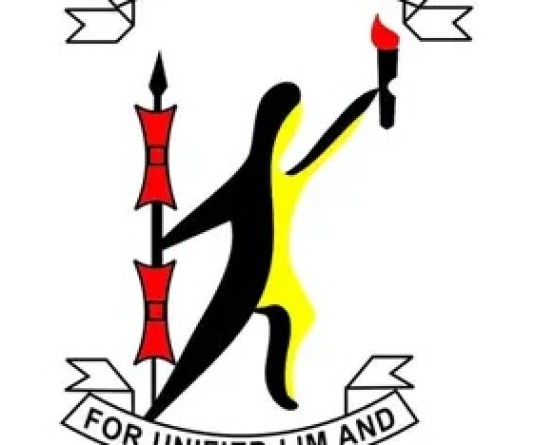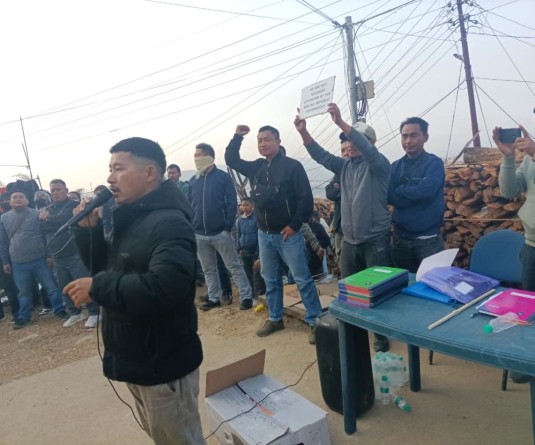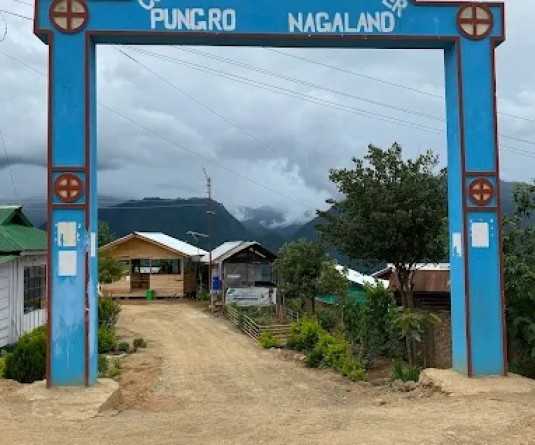
DIMAPUR, SEPTEMBER 13 (MExN): The Joint Committee for Prevention of Illegal Immigrants (JCPI) has urged the Nagaland Government to call for a public discourse regarding the controversial cut-off year for identifying indigenous inhabitants of Nagaland. This call comes in the wake of the Cabinet's decision on September 11, 2024, to extend the Inner Line Permit (ILP) to Dimapur, Chümoukedima, and Nuiland.
In a press statement, Media Cell, JCPI stated that the recent September 11 Cabinet decision to extend ILP to Dimapur, Chümoukedima and Nuiland is old wine in new skin while reiterating its stand that there cannot be 2 different cut off years for ILP in Nagaland.
Formed in 2018 by tribal apex bodies and civil society organizations (CSOs) of Nagaland, the JCPI said it was established in response to the National Register of Citizens (NRC) implementation in Assam. The committee has consistently advocated for the extension of the Bengal Eastern Frontier Regulation Act (BEFR Act) 1873/ILP to Dimapur, arguing that this Act should apply to the entire state since its statehood on December 1, 1963. It asserted that the cut-off year for identifying indigenous inhabitants should align with the statehood year was to ensure consistency and validity of documentation.
The JCPI said the standing Government Notification No AR8/8/76 Kohima, dated April 28, 1977, specifies three criteria for being classified as an indigenous inhabitant of Nagaland: entry in the electoral roll as of December 5, 1963; payment of house tax prior to December 1, 1963; and possession of property and patta before December 1, 1963.
In December 2019, the ILP was extended to the undivided Dimapur district. However, the cut-off year for this extension was set as November 21, 1979, according to Notification No. LR/2-118/76. It argued that this date, constituted a "Tribal Belt or compact area" out of mostly wasteland within the tribal area primarily for development purposes, and not for identifying indigenous people.
It also claimed that consultative meetings with non-Naga indigenous groups from Kuki, Kachari, Garo, and Mikirs revealed no objections to using the statehood year as the cut-off date. Despite this, the JCPI contended that the recent Cabinet decision to extend the ILP to additional areas does not address the core issue and maintains that a uniform cut-off year should be applied throughout Nagaland.
Also highlighting the importance of the Register of Indigenous Inhabitants of Nagaland (RIIN) for job reservations, tribal land protection under Article 371A, and other state privileges, the JCPI advocated that the RIIN implementation should use December 1, 1963, as the benchmark for transparency and accuracy in identifying indigenous inhabitants.
The JCPI, therefore, urged the Nagaland Government to engage in a public discourse on the cut-off year issue while stating that this policy of public governance will affect posterity. Also maintaining that it is duty bound for every right thinking bona-fide citizens of Nagaland to voice out against the detrimental action of the government, the JCPI appealed for a review of its decision in the larger interest of its citizens.






